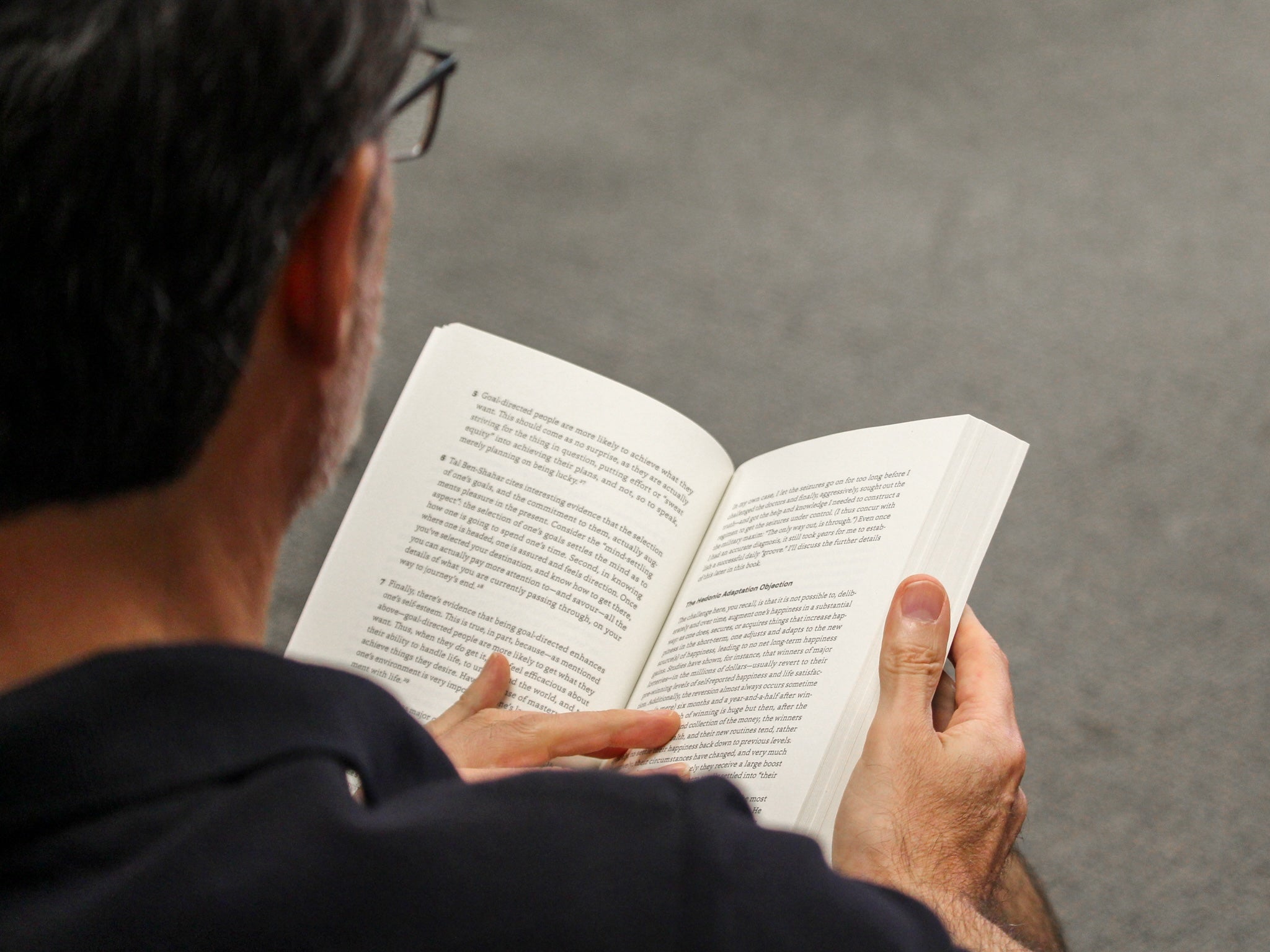 For Dr. Brian Orend (BA '94), a professor of philosophy and Waterloo alum, the quest for happiness has been both a professional endeavour and a personal journey.
For Dr. Brian Orend (BA '94), a professor of philosophy and Waterloo alum, the quest for happiness has been both a professional endeavour and a personal journey.
Orend's experiences with illness inspired his book Seizure the Day: Living a Happy Life with Illness, which reveals how his philosophical insights have shaped his understanding of happiness, resilience and the human condition.
Orend's journey began early in his academic career, rooted in philosophical inquiry. He has long been fascinated by questions of ethics, justice and the nature of a good life. These themes resonate throughout his scholarly work which examine justice, human rights and ethics in post-war reconstruction. However, it was his battle with mysterious and uncontrollable seizures that brought these abstract concepts into sharp, personal focus.
"During one of my classes, I had my first major seizure. It was sudden and disorienting, happening right in front of my students. One moment I was lecturing, and the next I was having a seizure, something that would take me on a journey of navigating the health-care system and chasing down a diagnosis," Orend said.
In Seizure the Day, Brian Orend recounts his journey through the profound challenges introduced by his condition. Orend's seizures were physically debilitating and mentally exhausting. Navigating a strained and fractured health-care system, he faced repeated misdiagnoses. Years later, he discovered the actual cause - a benign brain tumor - previously undisclosed due to an oversight. This ordeal brought significant personal strife that Orend had to overcome.
His philosophical background provided him with a unique toolkit to navigate these trials.
"Philosophy teaches us to question, seek understanding and find meaning even in adversity," Orend explained. "My condition forced me to confront the fragility of happiness and the importance of resilience."
Although there were tough feelings to deal with, Orend's philosophical insights allowed him to approach his condition with a sense of curiosity and determination rather than despair. He delved into the writings of philosophers, who emphasized the importance of inner strength and the ability to maintain tranquility in the face of external turmoil.
This perspective is crucial in understanding Orend's broader philosophy of happiness. It's not about eliminating pain or achieving a constant state of joy. Instead, it's about cultivating an attitude that allows us to find meaning and contentment regardless of circumstances, focusing on doing more activities and things you enjoy and less on what you don't.
 "Philosophy often emphasizes the individual, but our happiness is deeply interconnected with others," Orend said. "The empathy and support of those around us are critical to our well-being. Finding a community where you can share experiences and work towards collective goals can be uplifting. Surrounding yourself with people who are going through similar struggles allows you to learn from their strategies for managing challenges and implement those that resonate with you. It's about building a network of mutual support where everyone contributes to and benefits from the shared pursuit of happiness."
"Philosophy often emphasizes the individual, but our happiness is deeply interconnected with others," Orend said. "The empathy and support of those around us are critical to our well-being. Finding a community where you can share experiences and work towards collective goals can be uplifting. Surrounding yourself with people who are going through similar struggles allows you to learn from their strategies for managing challenges and implement those that resonate with you. It's about building a network of mutual support where everyone contributes to and benefits from the shared pursuit of happiness."
In the classroom, Orend brings these lessons to his students, encouraging them to think deeply about their own lives and the world around them. He challenges them to consider what true happiness means and how they can cultivate it in their own lives.
"Teaching is not just about imparting knowledge, it's about inspiring critical thinking and self-reflection," Orend explained. "I want my students to leave my classes not just with a better understanding of philosophical theories but with tools they can use to navigate their own challenges."
Orend's philosophical journey through chronic illness also highlights the importance of community and connection. His work, both academic and personal, underscores the value of philosophy in everyday life. In Seizure the Day, Orend writes about the support he received from family, friends and colleagues at Waterloo. This network was vital in helping him navigate his condition and maintaining a sense of hope and purpose. Through his story, we are reminded that happiness is not a static state but a dynamic process of growth, endurance, reflection and connection.






